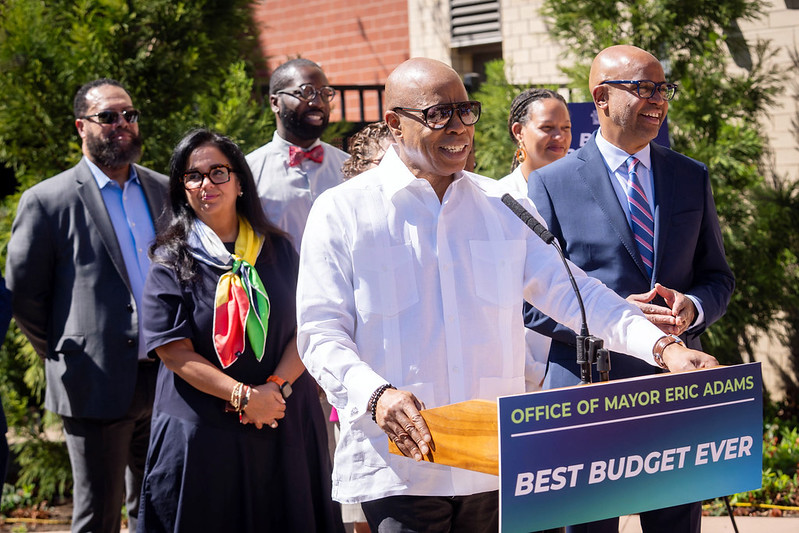A bill which was sponsored by State Assemblymember Nettie Mayersohn - which allows rape victims to receive the results of an HIV test on their accused assailants - will become Law on November 1, after it was signed by Governor Spitzer recently.
The legislation allows the court - at the request of the victim - to require the accused be tested for HIV within 48 hours of an indictment.
“It is critical that a rape victim be given the information on the HIV status of the alleged rapist as soon as possible,” Mayersohn said. “Victims are counseled to begin taking the medication immediately after the rape. When the victim then receives information on the rapist’s HIV status, she and her doctor can make an informed decision on whether or not to continue the treatment.”
The recent case of the Columbia University journalism student who was raped and tortured for 19 hours puts a face on the rape victim. Published reports indicate that, according to police sources, the attacker was not wearing a condom during the rape.
Therefore, in addition to enduring 19 hours of torture and rape, having her eyelids slit open, bleach poured on her, and set on fire, the victim had to endure the additional trauma of not knowing her assailant’s HIV status and had to undergo six weeks of very toxic medication.
The New York State Medical Society in its Memo in Support of the legislation stated, “An assault victim is in desperate need of an easily available piece of information that can dramatically impact their lives. This information is a vital factor in deciding treatment and treatment duration.… In our opinion, the potential harm in testing a falsely accused person is minimal; the potential benefit in testing a true perpetrator is immense.”
Mayersohn expressed her gratitude to Governor Spitzer and the sponsor of the Senate version of the bill, Steve Saland, for their strong support of the bill. The Senate version ultimately emerged from the legislative process to reach Spitzer’s desk for signature.
Victims may also have up to six months from the date of the alleged rape to make application for a “follow-up” testing of the defendant, and the results are to be provided to both the accuser and the accused. “Extraordinary circumstances” could allow the court to require further tests.
Other than the accused and “the victim, the victim’s immediate family, guardian, physicians, attorneys, medical or mental health providers and to his or her past and future contacts to whom there was or is a reasonable risk of HIV transmission,” the information can not be given to “any other person or the court.”
All the paperwork and orders relating to the tests would have to be sealed by the court, and all proceedings relating to them must be done “in camera,” essentially out of sight or hearing of the jury.
The law also makes funds from the State Crime Victims Board available to victims who were raped by a person testing positive, for assistance in obtaining HIV treatment.






























